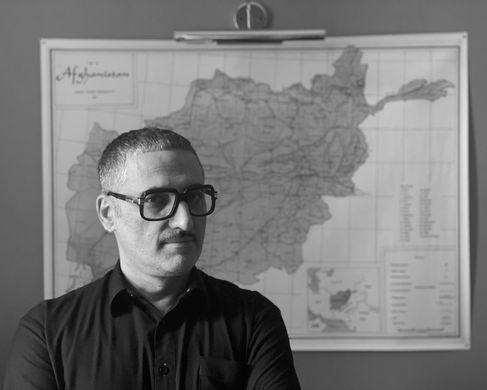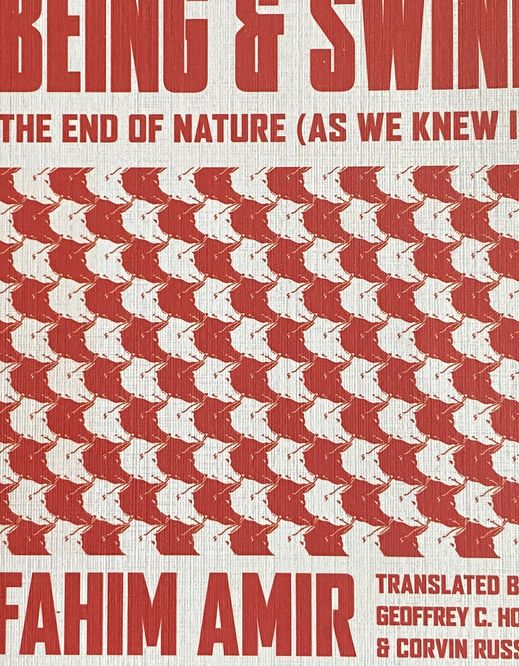The course Expanded Writing: Philosophy and Artwill introduce students to various forms of writing as thinking. Styles of writing and thinking are linked, and may differ profoundly: analytical, contemplative, descriptive, empathic, detached, speculative, playful, overwhelming, seductive, humorous, close-knit, sweeping, associative, atmospheric, poetic, phenomenological, genealogical, deconstructive, symptomatic and much more. Here writing is part of a collective search for other words and other ways of speaking. It is a question of perceiving subtleties in the internal and external qualities of being, of articulating them and of adopting a position. In this course, writing, understood as an exercise in thinking, will have recourse to philosophy, and will turn to art as a sphere for possible further reflection.
The focus will be on students' individual writing praxis, with support offered in one‑to‑one conversations. Based on prior knowledge and individual interests, a continuous role will be played by collective reading, reflection and discussion of texts from the suggested reading list. It will be similarly important for students to share and discuss their own experiences of writing, thinking and reading. Questions of form will be of utmost importance, covering dimensions of clarity and elegance, economy of expression, accessibility and intelligibility, apposite choice of words, use of transitional passages, appropriate language level, sensitive writing, attention to proportion and overall form – to mention only a few.
Prerequisite is readiness to work in a group. Basic knowledge of philosophy is desirable, though not a condition. The course is open to experienced writers and interested newcomers; curiosity, open-mindedness and eagerness to explore are expected. Not only reading, but also writing, has the power to change a person permanently.
Information
- Venue
- Festung Hohensalzburg
- Date
- 22. 7. – 3. 8. 24
- Teaching language
- English (German possible)
- What to bring
- Laptop and a list of writing – in any form – that you find inspiring / moving / challenging.
- Maximum number of participants
- 20
- Co-teacher
- Lisa Moravec
- Participation Fee
- 670 Euro (reduced 495 Euro)
Fahim Amir
Fahim Amir is Professor of Philosophy at the Bremen University of Applied Arts (DE) and teaches at institutes including that of Language Arts at the Vienna University of Applied Arts. Amir's research focuses on the thresholds of natural cultures and urbanism, art and utopia, as well as questions of colonialism, cohabitation and transculturalism. Amir was academic head of the Live Art Festival (Kampnagel Hamburg, 2013), curator of art exhibitions (Vienna Secession, 2014) and symposia for New Music (international holiday courses in Darmstadt, 2016), and has worked with artists including Chicks on Speed, Deichkind, Ted Gaier and Rocko Schamoni. Most recently, he has written texts for: Burgtheater, Vienna; Stuttgart State Opera; Hammer Museum, Los Angeles; Carnegie Biennale, Pittsburgh; Mumok, Vienna; Performance Space, New York; e-flux Journal; Mousse Magazine and others. Amir is co-editor of Transcultural Modernisms (Sternberg Press, 2013), and wrote the afterword to the German translation of Donna Haraway's Companion Species Manifesto (Merve, 2016). His book Schwein und Zeit. Tiere, Politik, Revolte was included in the Top Ten of the best non-fiction books listed in Die Zeit, ZDF, Deutschlandfunk Kultur, and was short-listed for the Prix François Sommer; the Goethe Institute and Frankfurt Book Fair elected it one the best books of the year. It has been entirely translated into English (Between the Lines, 2020), Persian (Elm, 2021) and French (Editions Divergences, 2022), and excerpts into Chinese, Arabic and Turkish. The Portuguese translation is to be published this year by the Centre for Logic, Epistemology and the History of Science (CLE Unicamp, São Paulo).

